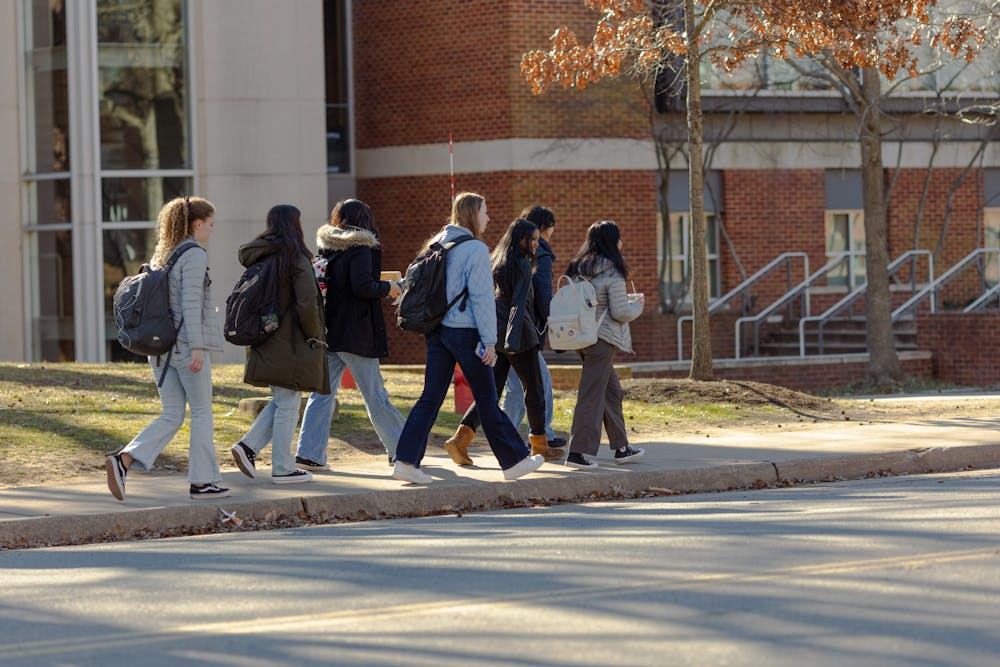One of my favorite memories from last semester comes from the celebration of an important part of my identity as a first-generation college student. I feel somewhat perplexed saying that because I didn't even know what this term meant at the start of my college career — let alone that I was considered a first-generation student.
To be a “first-generation” means that both of your parents or guardians did not complete a four-year college or university degree — the definition doesn’t usually take into account the education status of other family members. However, the first-generation experience is unique to each student — including myself.
When I was a first-year, I would get emails about different events held for the first-generation community at the University. I thought that since my older sister had graduated from college, I was not considered a “real” first-generation student so I would disregard the emails. It wasn’t until a conversation I had with one of the nursing faculty members that I realized my interpretation of first-generation was not entirely correct.
Now, being a first-generation college student is not only a major part of my identity, but is something that I have grown to appreciate as I grow as a student. It has taken me the majority of my college career to realize that there is something really special about being one of the first people in your family to pursue higher education. It is something that I — as well as all first-generation students — should be proud of and take pride in.
The road to embracing this part of my identity as a college student has not been easy. When considering even just the University student population as a whole, there are not many first-generation students — in the Class of 2026 alone, only 15 percent of students are first-generation. This means that it can somewhat feel like an alienating experience. It’s difficult when you are going through struggles that not many students around you understand or even difficult to express the level of effort you have to put in as a first-generation student in comparison to others.
Going off of that, I think the hardest part about it has been battling imposter syndrome — maybe my fellow first-generation readers can relate a little bit to this. Imposter syndrome is a type of pervasive and persistent feeling of self-doubt or insecurity about one’s abilities, knowledge or their deserved place in a room.
I have made great progress with this, and it’s not as prevalent in my life now as it used to be. However, it negatively impacted me in a way that made me question my place in a classroom and doubt my knowledge as well as my capabilities. For example, I would hesitate to engage in leadership roles because I did not think I was competent enough when that was in fact not the case.
One of the biggest things that helped me through imposter syndrome was connecting with people of similar backgrounds and leaning on those people. The friendships I have made as a result of being in spaces with other first-generation students are some of the strongest relationships I have. By being able to talk through my emotions and experiences with people who are similar to me in this regard, it reminds me that I am not alone in my journey.
My older sister — the person who has always been and continues to be my biggest supporter — is also part of why I am so proud of this part of my identity. Without her knowledge, I would have been a lost cause in the college application process. She has not once turned down my many phone calls when something has come up that I need help with. She continues to push me to work my hardest and has more faith in me that I could have ever imagined.
My mind also goes to my parents and the sacrifices that they have made so that all of this — my college experience — could be possible for me. They are truly two of my biggest motivators. Overall, the support of those around me has truly been the most important in helping me work through this. There is something so special and uplifting about being supported by those in your life — whether that is from your family or friends.
I feel proud of myself for the work that I have put in and all that I have been so fortunate enough to have accomplished. I am so glad I get to be a part of this first-generation community and celebrate it every day — and I am especially grateful to the community for aiding me to finally have the confidence to truly step into myself.
Zoya Zahid is a Life Columnist for The Cavalier Daily. She can be reached at life@cavalierdaily.com.







